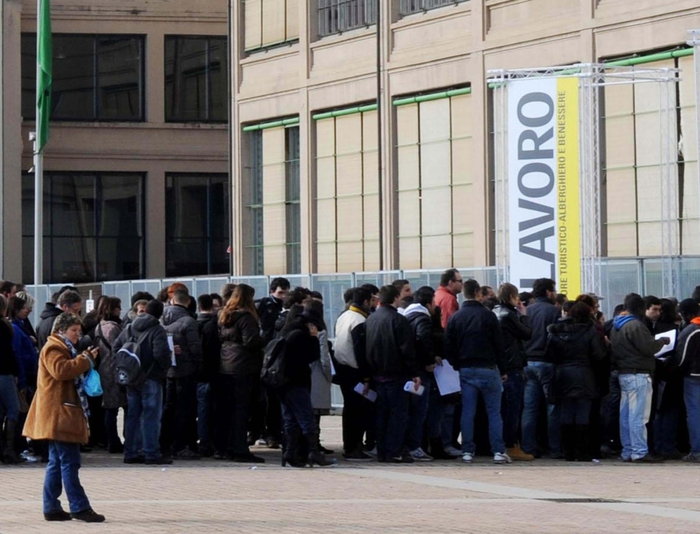03/23/2021 10:57 AM
Clarín.com
Economy
Updated 03/23/2021 11:04
The Covid-19 pandemic caused a revolution worldwide, and the labor market was one of the sectors that felt it the most.
The arrival of the new normal put all the attention on remote or hybrid work.
In its work on annual Labor Trends "The next paradigm is hybrid work: are we ready?",
Microsoft comes up with 7 conclusions
that every business leader must know to face the new era.
The first advice that emerges from the report is that heads of companies should avoid
comparing hybrid work with work as it was understood before
and, instead, aims to rethink and rethink ingrained preconceptions.
“The choices you make today will impact your organizations for years to come.
These moments require a clear vision and a growth mindset, ”says Jared Spataro, corporate vice president for Microsoft 365.
"These decisions will impact everything from how they shape their corporate culture, how they attract and retain talent, to how they more efficiently foster collaboration and innovation," he warns.
The Microsoft study also reveals seven hybrid work trends that leaders must take into account to face in 2021. One of the main conclusions is that
addressing flexible work will have an impact on style and will be decisive when it comes to seeing who stays, who leaves and who joins the companies.
The seven trends that emerge from the Microsoft document are:
Flexible work is here to stay.
Leaders out of touch with employees need a wake-up call.
High productivity hides an exhausted workforce.
Generation Z is at risk, it will be necessary to reactivate it.
The decline in social interactions jeopardizes innovation.
Authenticity will stimulate productivity and well-being.
In a hybrid world of work, talent is everywhere.
The analysis also suggests that, in the past year, the nature of work has fundamentally changed.
"Meeting time more than doubled globally."
points out the study, which supports its conclusion on the data that indicates that
more than 40,000 million emails were received
in the month of February of this year, compared to the previous one.
The document prepared by Microsoft reveals that "work has become more human
.
"
Nearly 40% of those surveyed say they feel more comfortable being more of themselves during their workday compared to before the pandemic.
"One in six has cried with a colleague this year,"
concludes the analysis.
“One thing is very clear:
we are no longer tied to traditional notions of time and space when it comes to how, when and where we work.
This is a huge mindset shift
, which will require leaders and organizations to reconfigure their operations to achieve extreme flexibility, ”says Spataro.
A more flexible job
73% of workers surveyed want flexible remote work options to continue.
Remote job postings on LinkedIn increased more than 5 times during the pandemic.
More than 40% of the global workforce have started considering leaving their employer this year and 46% plan to move now that they can work remotely.
The global research included studies in four Latin American countries: Argentina, Brazil, Colombia, and Mexico.
Among its considerations, the analysis showed that remote workers
"tend less to burnout", although one of the conclusions warns that high productivity hides an exhausted workforce.
31% of workers in Latin America feel exhausted, compared to 39% of the world average.
And 42% feel overworked, compared to 54% of the world average.
"They feel more freedom to be themselves
", is one of the conclusions that the analysis throws up.
54% of remote workers in Latin America feel more likely to be themselves at work, compared to last year and compared to 44% of the world average.
But not everything is positive, according to Microsoft,
workers in Latin America feel more socially isolated at work
.
49% of workers said their interactions with coworkers decreased (compared to 40% of the world average).
53% of those surveyed warned that they are more likely to consider changing jobs during the year
(compared to 46% of the world average).
In summary, the report noted that "addressing flexible work will impact who stays, who leaves and who joins the company."
Strategies
The Labor Trends Index identifies five strategies leaders can consider when driving change within their organizations:
Create a plan to encourage your employees to have extreme flexibility.
Invest in spaces and technology to unite the physical and digital worlds.
Fight digital exhaustion from above.
Prioritize the reconstruction of social capital and business culture.
Rethinking the employee experience to compete for the best and most diverse talents.
Karin Kimbrough, Chief Economist at LinkedIn said:
“One of the biggest trends we are seeing is the rise of telecommuting
.
As remote work opportunities and the talent movement democratize, there will be further expansion of skills in all countries.
This is the time for leaders to seize the opportunity to access different skills and talents that were previously unavailable. "
The 2021 Labor Trends Index describes the findings of a study of more than 30,000 people in 31 countries, and analyzes trillions of aggregate signals of productivity and workforce on Microsoft 365 and LinkedIn.
It also includes perspectives from experts who have studied collaboration, social capital, and workplace design for decades.
YN
Look also
The Government limits the scope of the Telework Law for the duration of the emergency
Saving time: what are the golden rules to make teleworking more efficient



/cloudfront-eu-central-1.images.arcpublishing.com/prisa/QTVF3EOGLFBTPJL3YXHGH4CEFE.jpg)


/cloudfront-eu-central-1.images.arcpublishing.com/prisa/PLLMQZDHVVEMHBHGHSS4ZY4A2E.jpg)
/cloudfront-eu-central-1.images.arcpublishing.com/prisa/BKFKZ33H7JCPZEHXBN7A7JPZHU.jpeg)






